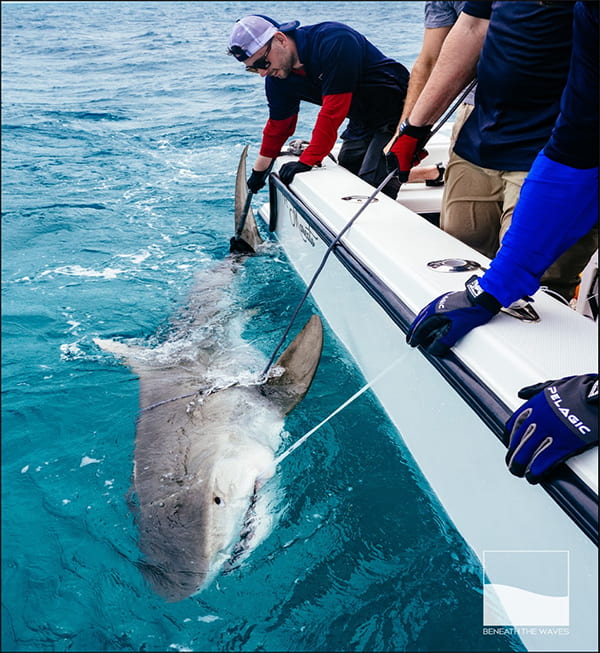From Saving the Sharks by way of Biological Research on Stony Brook News on June 3, 2019.
Global shark populations have experienced exponential declines for decades due to marine pollution, fisheries exploitation and coastal development. Oliver Shipley, a PhD student at the School of Marine and Atmospheric Sciences (SoMAS), is attempting to fill a gap within the biological information available to researchers about shark species, which has been lacking for marine biologists. He is conducting research in the Northeast Atlantic and in Caribbean coral reefs on numerous shark species – such as this tiger shark that was tagged by Shipley (pictured in stern of boat) and fellow investigators in the Bahamas. Shipley is using chemical tracers and movement technologies to identify prey resource pools and habitats of species. This will help researchers to better understand how sharks are getting their energy and what habitats help them thrive.
For more about his research, see this video on Shipley’s research with the organization Beneath the Waves.





Last Fall, Ollie participated in the “Meet with an Oceanographer” series at the Long Island Aquarium, where he presented his research to visitors at the aquarium. A good takeaway from the full interview is Shipley’s advice for people interested in becoming involved in his field of research or in marine sciences. “Take every opportunity you can to gain experience (even if it doesn’t directly apply to your field of interest), network like crazy, and be prepared to work long hours. It is all worth it when you achieve your end goal!”
Over Winter Break, Shipley participated in MAR 532, a Study Abroad course that went to the Cape Eleuthera Institute on Eleuthera, The Bahamas. The students in the course, including students in the Marine Conservation and Policy Program, were able to acquire samples from 17 sharks!